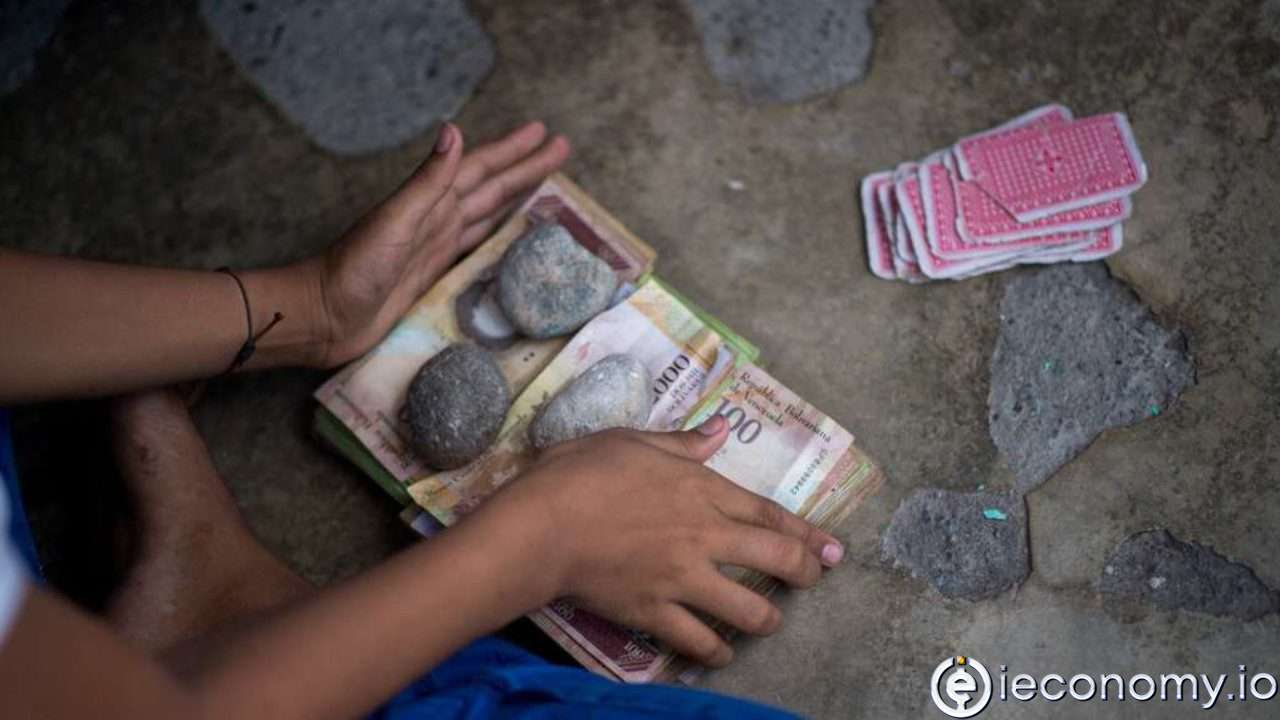6834
0
Venezuela cut six zeros from its currency
Venezuela cut six zeros from its currency. Everything expressed in national currency is divided by millions.

Yazar: Tom Roberts
Yayınlanma: 4 Ekim 2021 06:28
Güncellenme: 2 Mart 2026 20:35
Venezuela cut six zeros from its currency
The official exchange rate of the Venezuelan Bolivar fell from 4.18 million per US dollar to just 4.18 as the country struggling with hyperinflation on Friday to simplify transactions cut six zeros from its currency. This is the third banknote reform in 13 years, with a total of 14 zeros cut since 2008. "Everything expressed in national currency will be divided by millions," the central bank said. According to the central bank, the once rich oil producer has been struggling with recession and hyperinflation for eight years. The growth rate of consumer prices reached almost 3000% in 2020 and more than 9500% the year before. The consulting company Ecoanalítica expects the inflation rate to reach around 1600% in 2021. In May, the government tripled the minimum monthly wage, but even the new amount was not enough to buy a kilogram of meat. According to the latest study, three out of four Venezuelans live in extreme poverty, and the economic crisis has been exacerbated by US sanctions and the new coronavirus pandemic. In previous years, millions of people have left the country to try their luck elsewhere. As the bolivar lost almost all its value, 7 million bolivars were needed to pay for one loaf of bread before Friday's change, and the banknotes themselves are very difficult to obtain. The government will issue new banknotes in denominations of five, 10, 20, 50 and 100 bolivars, as well as disposable coins, but said it wants the economy to become completely digital. Analysts see this as a way to avoid squeezing money that will continue to depreciate and ultimately require further adjustments. The largest banknote that ends has a face value of 1 million, which is barely equivalent to 0.25 USD (0.21 euros) and is not even enough to buy sweets. It will remain in circulation in parallel with the new banknotes for several months. "The bolivar will not have more value, it will not have less value, it is just a currency scale that we apply by removing six zeros to facilitate transactions," said Central Bank Vice President Delcy Rodríguez this week. According to Luis Artur Bárcenas of Ecoanalítica, the move reflects "the lack of capacity of economic actors in Venezuela to control hyperinflation", a phenomenon "which has severely impoverished the population." As a result, people receive salaries in the millions of bolivars that actually have no value. In Venezuela, the minimum wage in public services is $ 2.5 per month and the average salary is about $ 50, while a basket of basic groceries for a family of five costs about $ 220. Most bolivarian payments are made by debit card or bank transfer, but according to private sector estimates, up to 70% of transactions are made in US dollars. Prices on many store shelves are in US currency to make things easier.İLGİLİ HABERLER





European stocks soared and focus shifted to German retail sales after Powell's speech!

Forex Signal For TRY/USD: Inflation Slowdown in November.

Forex Signal For GBP/USD: Bullish Trend Still Not Breaking While Recovery Continues.

Forex Signal For EUR/USD: Starry US Data Points to Higher Fed Increases.

Forex Signal For BTC/USD: Downside Continues as Bitcoin Recovery Moves Less.
En Popüler Haberler
Yorum Yap
Yorumlar
Henüz yorum yapan yok! İlk yorumu siz yapın...